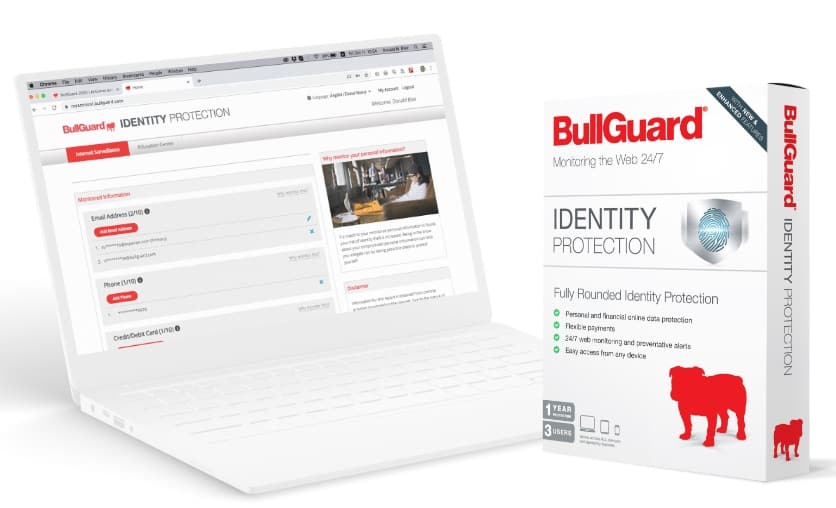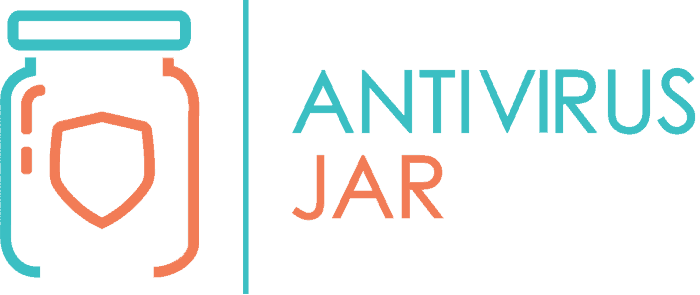
I can remember like it was yesterday when I got infected with ransomware for the first time. It was a widespread attack back in 2012 that affected multiple countries. Basically, I got my screen frozen with an image saying that it was the police, and they will going to arrest me if I don’t pay the $300 fine. I was so scared, and I believed it was legit because it had all the badges and the language the police will use. My heart started racing, and my head was about to explode. But I realized it was fake because their claims were false. Next thing I did… I started using an antivirus.
Can Antivirus detect ransomware? A premium version of Antivirus can detect ransomware. Still, it has to have real-time protection, anti-exploit technology, and dedicated anti-ransomware technology that blocks any action of holding files hostage.
Such antivirus software will protect you against all of the major ransomware attacks. But watch out for the “major” part, which implies that there are still attacks that might get to you. And so, apart from installing Antivirus that can detect ransomware, there are plenty of other things you’ll have to do yourself.
Never go to war without knowing your enemy couldn’t apply better to fighting ransomware. Here’s what you should know about this potentially catastrophic type of malware:
What is the difference between a virus and ransomware?
Both viruses and ransomware are types of malware, quite commonly encountered. But they work differently. A virus becomes part of an infected program. It inserts a copy of itself into that program. And it multiplies itself and spreads from one computer to another.
As it propagates, the virus leaves a path of destruction. Despite its “viral” characteristic, the effects of infection can be just mild disturbances. Or, if it’s a company that falls victim, it can suffer severe damages, with data or software loss and operational complications.
By contrast…
Ransomware has a single specific target. It works with cryptoviral extortion. And it basically encrypts files, making them inaccessible. The victim has to make a ransom payment to regain access to the locked files.
Ransomware attacks usually imply a deadline for the payment. Should the victim miss it, data will be deleted. Otherwise, the hacker would send a decryption key following the payment. But that’s not always the case.
Whether they pay or not, victims – especially large organizations – end up spending even more (as in millions of dollars) while working to recover their data or rebuild the lost work. The fear is so big that many of them actually purchase cyber insurances specifically for this type of attack.
How can you get one or the other?
This is yet another aspect that sets the difference between a virus and ransomware.
The virus cannot exist on its own. It needs a host, which is an executable file. And this is also how it spreads. When the victim runs the host file, the viral code is executed along with it, and that’s when it becomes active and starts replicating and spreading itself.
You can get viruses when you transfer an infected file. Whether you do it via email attachment, file sharing, drive, or network transfers, you’ll activate it unknowingly if the file contains the virus.
Ransomware, on the other hand, can spread through malvertising (one would hack legitimate advertising and use it to spread ransomware), phishing emails, or advanced exploit kits. Much like a worm, the ransomware can easily infect many different devices, as long as the victim takes the bait.
Ransomware will either trick someone into installing it or exploit a security hole in some vulnerable software. Because the purpose is to extort money, it will most likely target moderately high-profile victims. Small and medium-sized businesses and public institutions that don’t easily afford to lose the data but that also don’t really afford to pay ransomware insurance will be attacked.
What makes ransomware so successful?
As long as organizations or individuals keep paying ransoms, hackers keep developing and spreading ransomware.
The reason why many fall victims in the first place is that they fail to address the critical security flaws of the networks they work with. Organizations and enterprises tend to rely too much on cloud and online backups, which leaves them vulnerable when those backups are encrypted.
There’s also the fact that anonymous money transfer services make it very easy for the bad guys to get their payments without being caught.
And to make yourself a better idea of the size of the ransomware business, know that any cybercriminal now has the option to purchase ransomware-as-a-service!
Why should you never pay ransomware?
First of all, because you have no guarantee that you’ll get back your encrypted files after you make the payment. According to a report published by CyberEdge Group, only 19% of the ransomware victims who paid the ransom also got their data back.
Second of all, because not paying will discourage hackers from repeatedly launching such attacks. As mentioned above, one thing that makes ransomware so successful is that it works. Many people pay for it, and hackers are encouraged to keep launching these attacks because they’re profitable to them.
Do not pay the ransom is what any cybersecurity expert would tell you! If you’ve been scammed once, know that you only have 19% chances to get your valuable data back. And remember that by not giving the hacker what he wants, you’re reducing your odds of going through this again in the future!
How to prevent ransomware?
Ransomware prevention plays an even more significant role in avoiding the worst that can happen. Here’s what I suggest you do, to be as protected as possible:
- Use reputable, top-of-the-tier antivirus software;
- Keep your security software up-to-date;
- Keep all systems and software up-to-date;
- Use content scanning & filtering on all your mail servers, to prevent spam email with malware-infected attachments or malware links from getting to your inbox;
- Make sure that all inbound emails are scanned for threats, and that suspicious attachment is blocked;
- Instruct all employees:
- Not to share personal information when receiving unsolicited emails, phone calls, instant or text messages with this purpose – EVEN IF the sender claims to be from IT;
- To double-check any such request by directly contacting your IT department;
- To always announce the IT department before traveling, if planning to access work documents remotely;
- To always use a VPN when connecting to public Wi-Fi;
- Always be prepared for an attack:
- Include preventive network segregation, and segmentation that would minimize data loss should one segment be compromised;
- Rely on offline backups – ideally, you should have three copies stored in two independent places;
- Work with your security department to set up a risk management plan.
Which Antivirus is best for ransomware?
Judging by the protection layers they come with, and the scores received in testing, you should consider the following best Antivirus for ransomware:
BullGuard

This one comes with more than one ransomware protection layer. It can eliminate known ransomware and work to recover whatever data has been damaged before it managed to stop the attack. Not to mention it continually scans for ransomware-specific activity and behaviors, ready to prevent any unauthorized file modification.
On top of this, BullGuard will not be heavy on your system. This is one of my favorite parts, and this is what I use and what I will recommend. Click Here To find out more about their Antivirus.
Kaspersky Security Cloud
This free option will ensure your protection against file-encryption ransomware and the various disk-encryption varieties roaming around. It comes with a built-in module that works on breaking a couple of less-known screen-lock ransomware. AND you can pair it with Kasperky’s dedicated Anti-Ransomware Tool, which is also free. This one features cloud-assisted behavior detection, and it is ready to scan for and quickly block ransomware or crypto-malware!
AVG Antivirus
With AVG, you’re getting an effective ransomware shield and a dedicated anti-malware app. It has the benefits of coming with a user-friendly interface that you’ll easily tweak, and it gives you lots of options to configure it. Protection targets not only downloadable threats but also fishy links. Plus, you really need to check out their option to remotely scan a PC using the mobile!
***
There’s no better way to protect you from ransomware other than preventing it from happening in the first place. Knowing that there is antivirus software that can detect ransomware should only bring you a bit of relief.
You’re still supposed to be extremely careful about how you access online resources. Show as much caution as you can. And never stop informing yourself and learning about the new ways that hackers are spreading ransomware.



